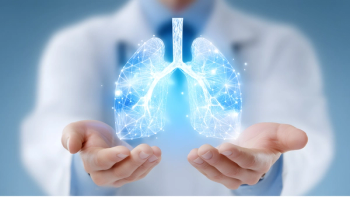
Forming Your Support Team
Transcript:
Shubham Pant, MD: Tell me about just mentally; you know we talked about this a little bit. But spiritually, did you change when you went through the journey; just mentally/spiritually, did you use that to kind of help you in your cancer journey?
Taylor Bell Duck: Yes, and my mom touched on this a little bit, that we come from a family of very strong faith. And so I really leaned into that and so thankful for that upbringing because I can’t imagine going through a diagnosis without it. And so I think if anything it strengthened my faith, and initially right after surgery recovery, getting back into the new normal, when that first scan came up I was a wreck. And it, anxiety is interesting because some people have it very severely, some people don’t. I’ve never been a person that’s been very anxious and so it was a new thing for me to kind of have to deal with. And so I leaned in to my faith and just kind of had a pow-wow with myself and the good Lord and just said, you know, you are in control and worrying about it is not going to do anything but just make me miserable.
And so over time as those scans have gotten farther away, my anxiety has lessened. But at the end of the day I just kind of have to realize that I’ve been given a beautiful life and every day is a blessing, and live it to the fullest. And when my time comes, it’s my time and I can’t control that. And so learning and accepting that has been a challenge, but definitely feel like I’ve gotten better over time.
Shubham Pant, MD: You’re sure you’re only 31, Taylor? I mean you have the wisdom of a Buddhist Monk with you. But tell me Richard, just starting with stressors, you know, patients and families go through so much stressors. So how do you help them get over them? Are there some stressors you think are much worse like do you think patients are, you know when you’ve dealt with patient and caregivers, is it more stressful going while they’re going through therapy, or maybe once they’ve finished their therapy, once the adrenaline is gon, you end up fight mode, and then it’s gone, and then it’s worse? So where do you think are the stressor or the pressure points?
Richard Dickens, MS, LCSW-R: Well, and again, that’s a great question too because as I use what my colleague Ellen Sonnet says all the time, and she’s our chief strategy and policy expert, if you’ve met one cancer patient, you’ve met one cancer patient. They’re all different. So there are different ways and different times that people go through that. And sometimes very rarely do people not even go through any of that. But in terms of communication and stress a lot of times, most people have some kind of network already. And if they’re lucky, and there are a lot of people with a big family friend network, is what I would say, and it was one of my colleagues had developed this some years ago, it’s an acronym, FDR — is you could really identify your friends, those who are feelers, those who are really people you could talk to and listen well, and those are the people you would call when you may be feeling, being distressed or anxious or such.
Then there’s doers, the “D”, and those are people who maybe don’t feel as comfortable talking, but they love to come over and help clean the house or bring you a dinner or take you to treatment. And then there’s the “R”, and I would call those researchers. And those are the people again who are really great on the computer and they know the good stuff from the bad stuff, and they’re the ones that could really do the background work in terms of .... and Taylor’s talked about this well in terms of education and resources and clinical trials and things like that.
For caregivers though there are some wonderful tools out there. When you have a big network, caregivers too get overwhelmed with well meaning people calling every day saying, “How did the scan go? And, what are you doing?” And patients and caregivers say, “I’m so tired taking care of the people that care about us.” But these programs really help identify and say, “We can use a meal tonight.” “We need transportation to treatment.” “I need to have somebody take me out to lunch.” And also, the medical team.
Taylor Bell Duck: Yes.
Richard Dickens, MS, LCSW-R: And again Taylor and Nancy have both spoken about this as the medical team isn’t just the oncologist, there’s a whole team there and building relationships with each individual is a great support network.
Shubham Pant, MD: So you’re again, Feelers, Doers, and Researchers — FDR. I think that’s an amazing acronym. So, Taylor, you had a lot of feelers, doers, and researchers?
Taylor Bell Duck: Thankfully, yes. I do want to touch on what he said about utilizing the medical team. I think so often people just think the physician and the nurse or the physician and the PA, there are so many people built into the oncology system that can help you. You know, lay navigators, nurse navigators, social workers, clinical trials nurses. You just have to be confident and comfortable and willing to ask for that help. And there’s incredible resources available.
Shubham Pant, MD: So ask for help and there’s a village out there which will help you go get through your diagnosis and get through your treatment and afterwards.




